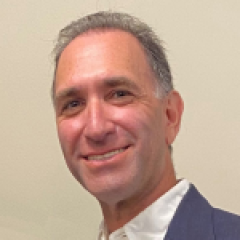Luxury of Bipartisan Frienemy Strategies
No Permanent Enemies. Or Friends
By Fawn Johnson
Education policy is both blessed and cursed by its bipartisan nature. Republicans and Democrats can agree on 90 percent of their goals for the nation's school system, and yet the details are often mired in strong political crosswinds. "In order to be able to persevere through the challenges, you have no permanent friends or permanent enemies in this work," said Jason Williams, executive director of Massachusetts Stand for Children.
Williams is a perfect example of this phenomenon. He was once a teachers' union representative, yet he found himself battling teachers unions in Massachusetts over a ballot initiative stating that teacher performance should take precedence over seniority. Stand for Children eventually dropped its ballot initiative campaign in favor of state legislation that puts teacher performance ahead of seniority in staffing decisions.
The education maze is difficult enough to navigate that politicians are likely to steer clear of taking controversial positions. One needs to look no farther than the presidential election to illustrate this fact. President Obama has couched his education platform in economic terms, focusing on the politically safe topics of reining in college tuition and increasing graduation rates. He has been silent on the trickier issues within the Democratic party, like teacher effectiveness or accountability. Former Massachusetts Gov. Mitt Romney has taken aim at the teachers unions in his education agenda, which he has not discussed or expanded since he unveiled it in May. He says education officials should elevate parents and students over "special interests."
"Nobody's got it completely right," said Williams, noting that his group has disagreements with both Republicans and Democrats. Any substantive policy changes are "going to require both Republicans and Democrats to be working together."
Is it realistic to think that different educational constituencies can be "friends" in certain areas and "enemies" in others? Are there partisan "litmus tests" in education that cannot be violated under any circumstances? How can people representing different perspectives learn to trust one another? What are the makings of a constructive conversation around education policy? Should political candidates delve more deeply into the details to bolster the dialogue?
Luxury of Bipartisan Frienemy Strategies
By Kevin Welner
While Stand for Children is well positioned to work with the wings of the Republican and Democratic parties that agree with Stand’s agenda, how well do these “frienemies” ideas work for those on the outside looking in?
For example, while Stand for Children is an astroturf/grasstops group aligned with powerful and wealthy interests and can therefore find allies among both Republicans and Democrats, true grassroots community organizations generally advocate policies that put them on the outside looking in.
While Stand for Children attempts to bring parents in line with a pre-existing reform agenda, true grassroots community organizations try to understand local needs and to help those in the community amplify their own political voices. This often plays out as local voices objecting to the imposition of policies from the outside that do not fit local needs of desires.
It also plays out in calls for economic justice. Political voice is much stronger among the wealthy than among the poor. Educational opportunities are also much greater for the wealthy, as are housing opportunities, healthcare opportunities, safe and unpolluted neighborhoods, etc etc. These true grassroots community organizations would surely love to form alliances with many Republicans and Democrats in pursuit of economic justice, but I doubt they will find the same open arms that Stand for Children finds when it seeks, e.g., to weaken teachers unions.
It’s not hard, then, to see why Stand for Children is able to build alliances (temporary or otherwise) with Republicans and Democrats while genuine grassroots community organizations have a much harder time flexing their political muscles.
Interestingly, while Stand for Children and its founder, Jonah Edelman, have chosen one path, another path has been followed by Peter Edelman, Jonah’s father. The elder Edelman is a law professor at Georgetown University and a long-time advocate of strong anti-poverty policies and policies designed to grow the middle class, as voiced in his New York Times commentary last Sunday (http://www.nytimes.com/2012/07/29/opinion/sunday/why-cant-we-end-poverty-in-america.html?_r=2&pagewanted=all). What do you think are the chances that Professor Edelman has, over the past week, received support for his ideas from a bipartisan coalition of Republicans and Democrats?
This blog post has been shared by permission from the author.
Readers wishing to comment on the content are encouraged to do so via the link to the original post.
Find the original post here:
The views expressed by the blogger are not necessarily those of NEPC.

